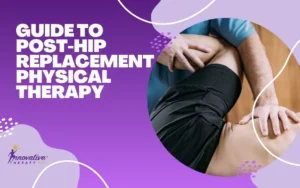Hip pain is a prevalent issue that can significantly impact one’s daily life. Whether it’s due to aging, injuries, or underlying medical conditions, seeking the expertise of a hip pain specialist is crucial for effective diagnosis and treatment. In Dallas, Texas, individuals experiencing hip discomfort can find relief through the expertise of dedicated professionals specializing in hip pain management.
If you are looking for a “hip pain specialist near me,” we will explore the various aspects of hip pain, from its causes and symptoms to when and how to seek treatment, along with insights on finding the right hip pain specialist in Dallas in this comprehensive article.
What Causes Hip Pain?

Hip pain can arise from a myriad of factors, and understanding the root causes is essential for targeted treatment. Here are some common culprits –
Musculoskeletal Issues
- Osteoarthritis: Gradual wear and tear of the hip joint.
- Rheumatoid Arthritis: Autoimmune inflammation affecting the joints.
- Bursitis: Inflammation of the fluid-filled sacs that cushion the hip joints.
- Tendinitis: Irritation or inflammation of the tendons surrounding the hip joint.
Injuries And Trauma
- Hip Dislocation: Forceful displacement of the hip joint.
- Strains and Sprains: Overstretching or tearing of muscles and ligaments.
- Labral Tears: Damage to the cartilage surrounding the hip socket.
Systemic Conditions
- Infections: Inflammatory joint infections leading to hip pain.
- Cancers: Metastasis to the hip joint from certain types of cancer.
What Are The Symptoms Of Hip Pain?
Recognizing the symptoms of hip pain is crucial for early intervention. Symptoms may vary depending on the underlying cause, but typical indicators include –
- Persistent Hip Discomfort: Constant pain in the hip joint or surrounding area.
- Limited Range of Motion: Difficulty moving the hip or performing daily activities.
- Swelling And Tenderness: Inflammation around the hip joint.
- Audible Clicking Or Popping Sounds: Indicative of potential joint issues.
- Radiating Pain: Discomfort extending to the thigh or groin.
When Should I Get Treatment For Hip Pain?
Effective management of hip pain begins with recognizing the signs that warrant professional medical intervention, and you should consult a specialist for hip pain. Here’s a more detailed exploration of each indicator –
Severe And Persistent Pain
- Intensity and Character: Understanding the nature of the pain is crucial. Sharp, stabbing, or throbbing pain that persists despite rest or mild interventions should be considered seriously.
- Pain at Rest: If the pain persists even when at rest, it may indicate an underlying issue that needs attention. This is particularly concerning if the pain disrupts sleep or daily activities.
Inability To Bear Weight
- Pain With Weight-Bearing: Difficulty standing or walking due to pain is a red flag. The inability to bear weight on the affected hip can suggest structural damage, such as fractures or joint instability.
- Altered Walking Pattern: Pay attention to changes in your gait. If you find yourself favoring one leg or limping to alleviate hip pain, it indicates that the problem requires professional evaluation. It would help if you looked for a “hip pain specialist near me” in such a condition.
Sudden Injuries
- Immediate Pain After Injury: Any sudden impact, fall, or trauma resulting in immediate hip pain should not be ignored. Prompt medical evaluation can rule out fractures, dislocations, or soft tissue injuries.
- Visible Signs Of Trauma: Bruising, swelling, or deformities around the hip joint following an injury are signals that should not be underestimated. These signs could indicate more severe damage that needs urgent attention.
Fever Or Swelling
- Signs of Infection: Hip pain accompanied by fever, chills, or general malaise could indicate an underlying infection. Infections in the hip joint are severe and require immediate medical attention to prevent further complications.
- Localized Swelling and Redness: Swelling around the hip joint, especially if it is warm to the touch and accompanied by redness, suggests inflammation. This could be due to conditions such as bursitis or arthritis and requires professional evaluation.
You can also decide who to see for hip pain based on these symptoms and conditions.
How Is Hip Pain Diagnosed?
Accurate diagnosis is fundamental for devising an appropriate treatment plan. The diagnostic process typically involves –
- Thorough Medical History: A detailed discussion of symptoms, medical history, and lifestyle.
- Physical Examination: Assessment of hip joint movement, strength, and flexibility.
- Imaging Tests: X-rays, MRIs, or CT scans to visualize the hip joint.
- Lab Tests: Blood tests to identify underlying inflammatory or infectious conditions.
What Are The Possible Treatment Options For Hip Pain Conditions?

Treatment for hip pain is tailored to the specific condition and its severity. Here’s a concise breakdown –
Non-Surgical Approaches
Medications
- Prescription or over-the-counter drugs for pain relief.
- Anti-inflammatories to address underlying inflammation.
- Disease-modifying drugs for conditions like rheumatoid arthritis.
Physical Therapy
- Customized exercises designed to enhance strength and flexibility.
- Joint-stabilizing routines to improve overall hip function.
Lifestyle Modifications
- Weight management strategies to reduce stress on the hip joint.
- Activity adjustments to avoid exacerbating the condition.
Surgical Interventions
Hip Arthroscopy
- Minimally invasive surgery to diagnose and treat joint issues.
- Allows for precise examination and treatment of hip problems.
Joint Replacement
- Partial or total hip replacement for advanced arthritis.
- Restores function and alleviates pain by replacing the damaged joint.
Fracture Repair
- Surgical fixation for hip fractures caused by trauma.
- Stabilizes and aligns the fractured bones for optimal healing.
How To Find A Hip Pain Specialist Near Me
Locating a dedicated “hip pain specialist near me” is crucial for personalized and effective care. Follow these steps to find the right specialist:
- Ask for Referrals: Seek recommendations from your primary care physician, friends, or family.
- Check Online Directories: Utilize online platforms listing healthcare providers and their specialties by searching “hip pain relief near me.”
- Consider Hospital Affiliations: Specialists affiliated with reputable Dallas hospitals may provide quality care.
- Verify Insurance Coverage: Ensure the specialist accepts your insurance plan for cost-effective treatment.
Conclusion
Hip pain is a prevalent issue that can significantly impact one’s quality of life. In Dallas, Texas, individuals can find relief through the expertise of dedicated hip pain specialists. Individuals can take proactive steps toward managing and alleviating hip pain by understanding the causes, recognizing symptoms, and knowing when to seek treatment. Don’t let hip pain limit your life – reach out to Innovative Therapy PC, a trusted “hip pain specialist near me,” and embark on the journey to a pain-free and more mobile future.
FAQs:
What Is The Best Doctor To See For Hip Pain?
For hip pain, consulting with an orthopedic doctor, specifically an orthopedic surgeon or a rheumatologist, is advisable. They specialize in musculoskeletal conditions and can provide a comprehensive assessment and treatment plan.
What Can Doctors Do For Severe Hip Pain?
Doctors can employ various treatments for severe hip pain, including medications like pain relievers and anti-inflammatories. Non-surgical interventions such as physical therapy, lifestyle modifications, and, in some cases, injections can be explored. For severe cases, surgical options like hip arthroscopy or joint replacement may be recommended.
Can Hip Pain Be Treated Without Surgery?
Yes, many cases of hip pain can be effectively treated without surgery. Non-surgical approaches include medications, physical therapy, lifestyle modifications, and, in some instances, joint injections. These methods aim to manage pain, improve mobility, and address underlying causes without the need for surgical intervention.
Should I Keep Walking With Hip Pain?
It depends on the cause and severity of the hip pain. Gentle walking may be beneficial for some conditions as it can improve circulation and maintain joint flexibility. However, if walking exacerbates the pain or if there’s a risk of injury, it’s advisable to consult with a healthcare professional before continuing. In some cases, rest may be recommended initially to aid in the healing process.





